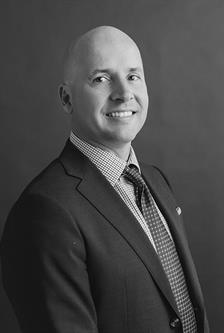
On July 17th, the Florida Attorney General’s Medicaid Fraud Control Unit arrested the administrator and assistant administrator at a local assisted living facility for failing to protect facility residents and making sure they received prescribed nursing services.
According to news reports, the administrators allegedly refused to allow psychological nursing caregivers to enter into the assisted living facility to assist mental health residents. This resulted in the facility residents not receiving care for two to three weeks.
The facility administrator faces three counts of abuse and the assistant administrator faces three counts of neglect, which are all third degree felonies. If they are convicted, each could receive up to 15 years in prison and up to $15,000 in fines.
Elder Abuse
Unfortunately, according the United States Department of Health & Human Services’ (DHHS) Administration on Aging (AOA), every year hundreds of thousands of older persons are abused, neglected, and exploited. Many of these victims are older and frail, which makes them more vulnerable to abuse because they depend on others to meet their most basic needs.
Abuse can take on many forms, including:
– Physical abuse – inflicting physical injury or pain, including hitting, slapping, or restraining by physical or chemical means;
– Emotional abuse – inflicting mental pain, distress, or anguish through verbal or nonverbal acts, such as by being humiliating, intimidating, or threatening;
– Sexual abuse – including non-consensual sexual contact of any kind;
– Neglect – failing to provide food, shelter, healthcare, or protection; and
– Exploitation – illegally taking, misusing, or concealing money, funds, property, or other assets for someone’s benefit other than the senior to whom they belong.
Signs Of Elder Abuse
Signs of abuse, neglect, or exploitation can be varied and subtle depending on the senior’s cognitive and physical condition, the amount of outside care the senior receives, and the senior’s living environment.
However, some possible signs or “tells” of abuse include the following:
– The senior seems afraid of his or her caregiver;
– The senior has unexplained bruises, cuts, or other injuries;
– The senior has bedsores or pressure sores;
– The senior appears unclean, dirty, or otherwise unkempt;
– The senior appears malnourished, undernourished, or dehydrated;
– The senior appears to be under-medicated or over-medicated;
– The senior has dental issues or other untreated health issues;
– The senior’s caregiver has problems with alcohol, drugs, or is emotionally unstable;
– The senior’s pet seems neglected or abused;
– The senior has a “new best friend” who is willing to take care of him or her;
– There is evidence of changes in banking or spending patterns;
– There is an increase in mail or phone calls soliciting donations or requesting money; or
– The senior is isolated from family and friends.
Persons who have a reason to suspect elder abuse, neglect, or exploitation should follow their “gut” and not ignore possible warning signs because a senior’s life may depend on the situation being reported.
Perpetrators
Elder abuse can be committed by anyone who has contact with a senior or older person. Abusers can be men or women, of any age, race, or socioeconomic status.
Persons who commit elder abuse can be service providers, care providers or caregivers, friends, peers, strangers, or family members. In fact, experts believe that most cases of elder abuse are committed by someone the senior knows and trusts, such as adult children, spouses, financial advisors, or others with a close relationship to the senior.
Florida Abuse, Neglect, And Exploitation Of Elderly Persons And Disabled Adults
Florida law expressly prohibits the abuse, neglect, and exploitation of elderly persons and disabled adults.
Chapter825 of the Florida statutes makes it a crime for anyone to physically or psychologically abuse, neglect, or exploit an elderly person or disabled adult. They also make it a crime to neglect an elderly person or disabled adult
Chapter415 of the Florida statutes further protects vulnerable adults from abuse, neglect, or exploitation by imposing a mandatory reporting requirement on anyone who knows, or has reasonable cause to suspect, that a vulnerable adult has been or is being abused, neglected, or exploited. Abuse can be reported by calling the Florida Abuse Hotline at (800) 962-2873.
Under section415.1111, seniors, the elderly, and other vulnerable persons who have been abused, neglected, or exploited can recover actual and punitive damages from his or her abuser. The action can be brought by the abused person, or by his or her guardian, or by someone acting with the consent of the person or his or her guardian.
Section 415.111 allows a prevailing party to recover reasonable attorney’s fees, costs of the action and damages, which can include medical costs for injuries sustained, as well as other related injury costs. Additionally,Florida statute section772.11 allows an elderly person that has been exploited under Chapter 825 to obtain up to three time his or her actual damages.
Additionally, Florida Statute Section allows an elderly person that has been exploited under Chapter 825 to obtain up to three times his actual damages.
We Can Provide Legal Help
If you suspect that your loved one is being abused, neglected, or otherwise exploited, either in a nursing home or other care facility, contact the Tallahassee personal injury lawyers at Fasig & Brooks today at (850) 222-3232.


